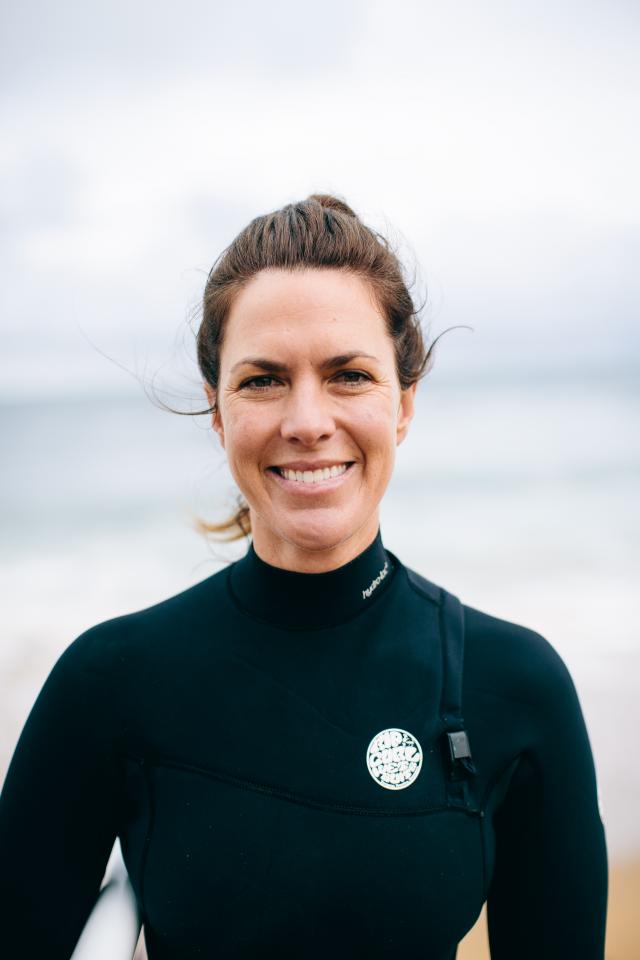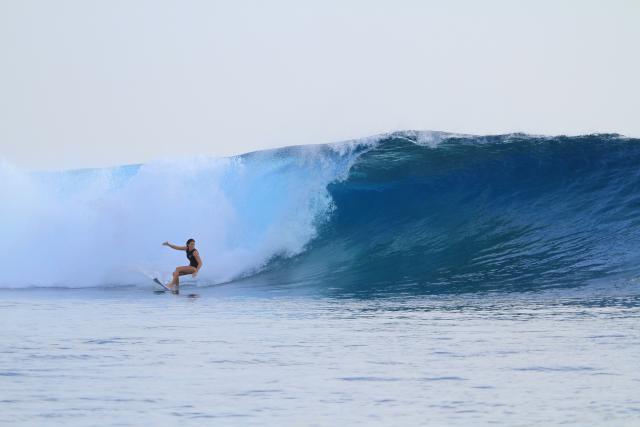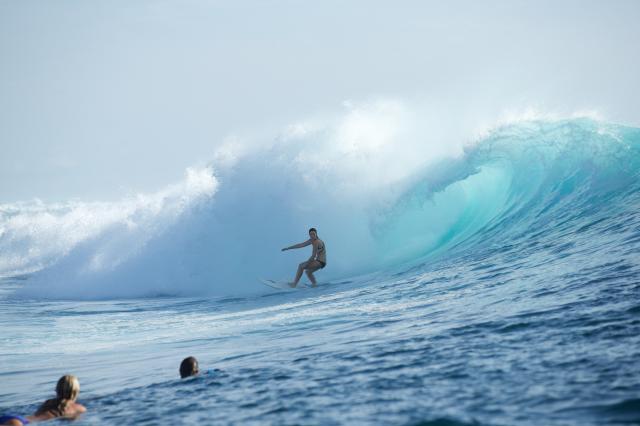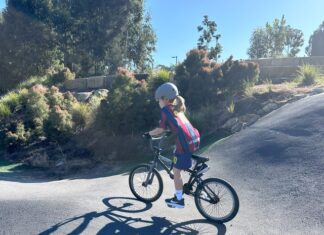To say that the surf industry was rocked last August when Australia’s pioneer surf company, Rip Curl, announced its first woman chief executive officer in its 52-year history is something of an understatement.
“A sign that surfing is moving away from its gender-bullying past,” is how surf journalist Nick Carroll described the epoch-making appointment.
“It’s about bloody time,” said seven-times world champion Layne Beachley.
But former pro surfer Brooke Farris, the history-making appointee, was much more than an affirmative action call by the famously blokey surf brand whose founders sold to New Zealand-based outdoors group Kathmandu for $350 million in 2019. Since dropping out of uni in 1999 to join the women’s qualifying tour, the one-time Australian junior champion from Western Australia has spent two decades proving her ability in business and people management, starting with becoming Beachley’s manager in 2002, following up with several years running the women’s ASP world tour, before moving into executive roles with her long-time surf sponsor Rip Curl in 2010.
Just six months into the CEO job, Farris has already impressed the business world with her sharp mind and easy-going style, and at 41, she is still ripping and shredding in the surf.
PHIL JARRATT put her in the NT Hotseat just a few days ahead of her appearance with Layne Beachley at the Noosa Festival of Surfing’s SurfAid charity fundraiser today (Friday 4 March).
Is it true that you and Layne cried into your phones after you were announced CEO of Rip Curl?
No crying, but we were both very excited. It wasn’t really an emotional journey for me though. I just thought, well, they’ve put their trust in me and I have to do the best job I possibly can.
Were you surprised by the appointment?
I won’t say I was entirely surprised. I felt I’d put my best foot forward during the interview process and I was really comfortable with that, figuring if I didn’t get it then I simply wasn’t the right person for the job. I focussed on the process, not the outcome. When my boss told me I’d got the job, Victoria was back in lockdown so I just had to take a deep breath and tell myself, right, this is actually happening now and I need to focus on the job ahead. But there was a 24-hour window where I got to enjoy the moment with friends.
So you’re making history as the company’s first female CEO and you can’t even call your team together! Did Covid make it difficult to find your feet?
Yes. The whole Rip Curl culture, around Australia, around the world, is built on personal relationships. That’s what keeps the brand strong. Our head office in Torquay, Victoria had always led the way in that, so it was an incredibly tough time for our crew, but I think they were outstanding in the way they handled remote communication and kept everything going so smoothly. Fortunately for me, my 11-plus years working at Rip Curl meant that I had a lot of relationships already in place, which made it easier. I was announced as CEO in August and we weren’t back in the office until November, and even then it was recommended that you worked from home if you could. Now that has been removed, it gave me such pleasure to send out an email saying, see you all at the office on Monday, no face masks!
In the middle of the Covid period the surfboard industry was in an unexpected boom. Did that cross over into surfwear and wetsuits?
Yes, Rip Curl has had two very positive years during the pandemic. We were lucky that surfing was one sport you could still do, and there was a huge lift in hardware sales that we were able to capitalise on and gain momentum from and continue promoting the brand. For example, the Rip Curl WSL Finals series in California last year was a huge initiative for us.
I’m relieved to hear that you and the CFO didn’t have to strip back the marketing budget.
(Laughs) We were very creative. And we made sure we put our money in the right places.
You mentioned the Rip Curl corporate culture which, in my experience, mostly from the early days, was always very blokey. Had that changed before you came on board a dozen years ago?
Yes, it’s certainly changed over the years, but it’s a hard one for me to answer because I grew up with two older brothers, so blokey is kind of normal for me. I’ve always had great relationships with the men at Rip Curl and I think I’m able to bridge the gaps and soften that perception of a male-dominated workplace.
What’s the ratio of men to women in the executive ranks?
We have eight people on our executive team and four are women. One of the women is off on maternity leave at the moment and she’s being covered by a male, but normally we’re 50/50.
What was your role at Rip Curl before you became CEO?
I was the general manager of the women’s division, a position that was created because of our strategy to focus on the growth of the women’s brand. I was asked to super-charge it.
It seems from the outside that most of your career has been built around the sport of surfing. Was manager of women’s a stepping stone to prepare you to lead a half-billion dollar revenue global company?
I actually think that the stepping stone was my role prior to managing women’s, when I was general manager of digital. That was five years ago, and it was an area of the business that was underdone and not one that we were fully across, so it was a big challenge for me to learn that side, build a team and look to where we wanted to be in digital in the future in both sales and marketing.
You’re coming to Noosa with your old mate and former boss Layne Beachley, who says that your actual job was managing her life. Can you give us a brief insight into how that worked?
Oh gosh, I’m not sure I can be brief about that! It was a fantastic way to spend my early 20s, to be working alongside an elite athlete who was at her peak in a sport that I loved too. And it was such a broad field, from managing Layne to taking care of media, to running the Beachley Classic surfing event, to producing and directing a DVD for her, to working on her Reach For The Stars Foundation. I was getting this amazing education in so many areas, while travelling the world and surfing. It was never my goal, it just came about totally unplanned. It was meant to be for a few months and it went for six years, and I’m so thankful for everything I learnt over that period.
We all know that Layne doesn’t take no for an answer! Were there any flashpoints?
(Laughs) I think I have a fairly amenable personality. I knew when to lean in and when not to. We struck the right balance between friendship and business, and all these years later we’re still friends.
The story I love is that when you were running the women’s tour for the ASP you had to call her out for using offensive language. Please tell me that’s true?
It is. It was at the Bells Beach Classic, and while being interviewed she used the f… word, complaining about the beach announcer telling her competitors that there was a set of waves coming. I was pretty new as tour manager but I had to tell her, friendship aside, that I had to reprimand her and she was not to do that again.
I’m sure she took it with good grace.
Yes, but she brings it up a lot. (Laughs)
Brooke Farris and Layne Beachley will be in conversation with Nick Carroll at the SurfAid Charity Fundraiser at the Beach Bar, Main Beach, 4-8pm, Friday 4 March (today). Tickets ($50) available at noosafestivalofsurfing.com










